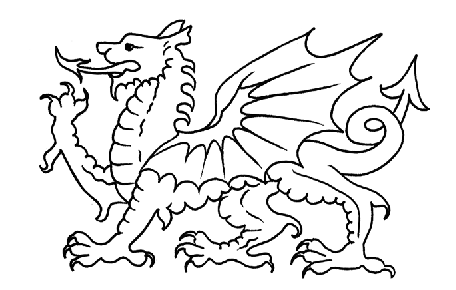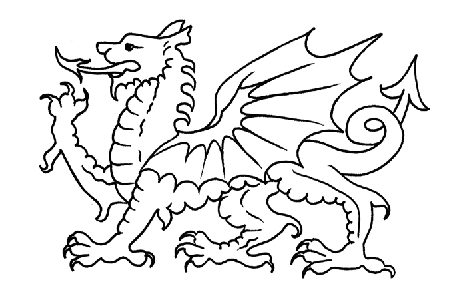 So Welsh has been used for the first time in a meeting of the Council of the EU today. Woo hoo. Let’s all jump up and down and beat the nationalist drum!
So Welsh has been used for the first time in a meeting of the Council of the EU today. Woo hoo. Let’s all jump up and down and beat the nationalist drum!
Ordovicius is happy and Alun Ffred Jones who spoke Welsh at the Culture Council stated “Welsh is one of Europe’s oldest languages and I am delighted that my ministerial colleagues from across the union will hear it as a living and dynamic language of business.” Well yes, Alun, you’ve hit the nail on the head there: they will hear Welsh, and then they will have to wait 20 seconds for an inadequate relay translation through the headphones. Welsh to Finnish or Slovak anyone?
Essentially negotiations in Brussels between Parliament, Council and Commission are about communication, getting your message across in the most effective manner possible. In practice this means English most of the time, with some French and German. Plenty of canny MEPs in Parliament have even taken to speaking English even when interpretation is available because people understand it first time that way. Plus while Welsh may have been uttered in Council you can bet all the real work – the drafting of the conclusions, any detailed amendment of legislation, was all carried out in English.
But let’s take a step back… Is this about communication, or is it political? If it’s the former then you can make no case for Welsh, as the Minister could undoubtedly have spoken English (just as a Maltese minister could, and Maltese – stupidly – is an official EU language).
If it’s political, and it’s about the place for Wales in the EU, then there are other things that would be much better to do. Wales has 3 million citizens, more or less the same as the Republic of Ireland. But Wales has 4 MEPs, and Ireland gets 13. So it would make more sense to lobby for more MEPs and hence more influence, rather than make a stand on Welsh.
Oh, and while we’re at it, Welsh is a rather small language – I would estimate that maximum 1 million people use Welsh on a daily basis. That number is dwarfed by the numbers in Europe that speak Arabic or Russian as their first languages. But then those groups are across borders, and have not organised themselves into parties that lobby to lose influence in Brussels by speaking an incomprehensible language in Council.

I am surprised no-one has already offered this thought: Will English continue as the preferred language once we have left ? Yes, I am assuming that we complete some sort of Brexit, whatever I might wish for.
Mae Cymru’n genedl Ewropeaidd ac felly mae’n gwbl rhesymol a theg i’w iaith brodol gael cydnabyddiaeth a statws teilwng ar lefel Ewropeaidd. Mae’r Gymraeg yn rhan anatod o threftadaeth a diwylliant Ewrop gyfan. Yn fwy efallai na’r Iaith Fain sydd bellach yn brysur tyfu’n iaith fyd-eang masnachol (Globish) yn perthyn i bobl o phob lliw a hil ac felly heb unrhyw wir angen na chyfiawnhad am y fath statws yn yr Undeb Ewropeaidd.
Welsh is the British language. English is the Global language.
Jon Worth. European, social democrat, federalist, atheist, anti-monarchist, ENTJ. Inline skater. Blogger, website designer, avid Mac user, trainer, Tosser
Thinking that you are Pro-European, you are pretty ignorant aren’t you ?
The Welsh language is as language under the European Charter of Regional Languages and is given a special status by the organisation.
As Stephen Fry once said “Anyone who thinks language is just a communication tool is an imbecile”. I think he was refering to you.
The EU is surely a structure of many, many, different cultures and languages. English – as a highly dominant language – is likely to be one of the key languages of the world, not just the EU, so, in the eyes of this member of a very small country that was occupied and conquered by England, it seems a tad churlish to complain about the use of Welsh. This is, surely, part of what the EU is there for. It`s to encourage a sense that within modern Europe, smaller cultures are equally valid as larger ones.
Welsh is, let`s not forget, a very, very, old language, that was spoken, in a not-dissimilar form to today, in much of England, up to and including the Roman Period. London itself is, allegedly, an Anglicised corruption of the old Welsh name for the settlement – Llyndin. I would like to hope that the titans of European culture – the English, French, Germans, Spaniards, and Italians – would not feel threatened by one speech in this very old language. The first Welsh speech in 35 years of the UK`s EU membership, of course.
Jon, you use the old Labour argument that use of Welsh, and interest in Welsh culture is somehow nationalist. It`s sad that this is still being used. There are Welsh speakers in all parties (including Labour, as strange as it may seem, given the antipathy within the party to non-English-speaking culture within Wales). You seem to think that Welsh language use is political, and you are wrong.
Glyn – you might be right in terms of Labour in Wales. But on this one I am not really speaking as a Labour person, but instead trying to look at language issues from the EU perspective, rather than from the narrow national perspective.
Jon Worth – the authentic voice of English cultural imperialism? Surely not? Jon – your waspish and churlish comment is perhaps emblematic of why Labour`s vote has plummeted in many areas of Wales, where, 15-20 years ago, they more or less weighed the ballots for your party. The political landscape, in Wales, has moved, but, it seems, the traditional Labour disdain towards the Welsh language remains, and Labour is being left behind. I`ve seen it all too many times. I was a Welsh Labour member from 1990-2000.
Making a speech in the Council has little to do with negotiation or with lobbying. It is just a political statement that shows that EU can be a place as well for people who speak “incomprehensible languages”, as you unfortunately call them.
The fact that all the real work behind is done in English or French should not make us forget that all around the EU people speak other languages, sometimes even without real recognition by their States. English speakers might be tempted to forget that.
And regarding the political influence, it seems difficult Wales may get more MEPs if it means for MEPs for the UK – they’d have to become independent. Hardly an option you would recommend, I imagine.
Getting our Regional Minister to address the Council in Basque was an excellent political and communication initiative, that earned support for Europe at the level where it is most needed – the local one.
I’m sure you see the point from a Welsh perspective…